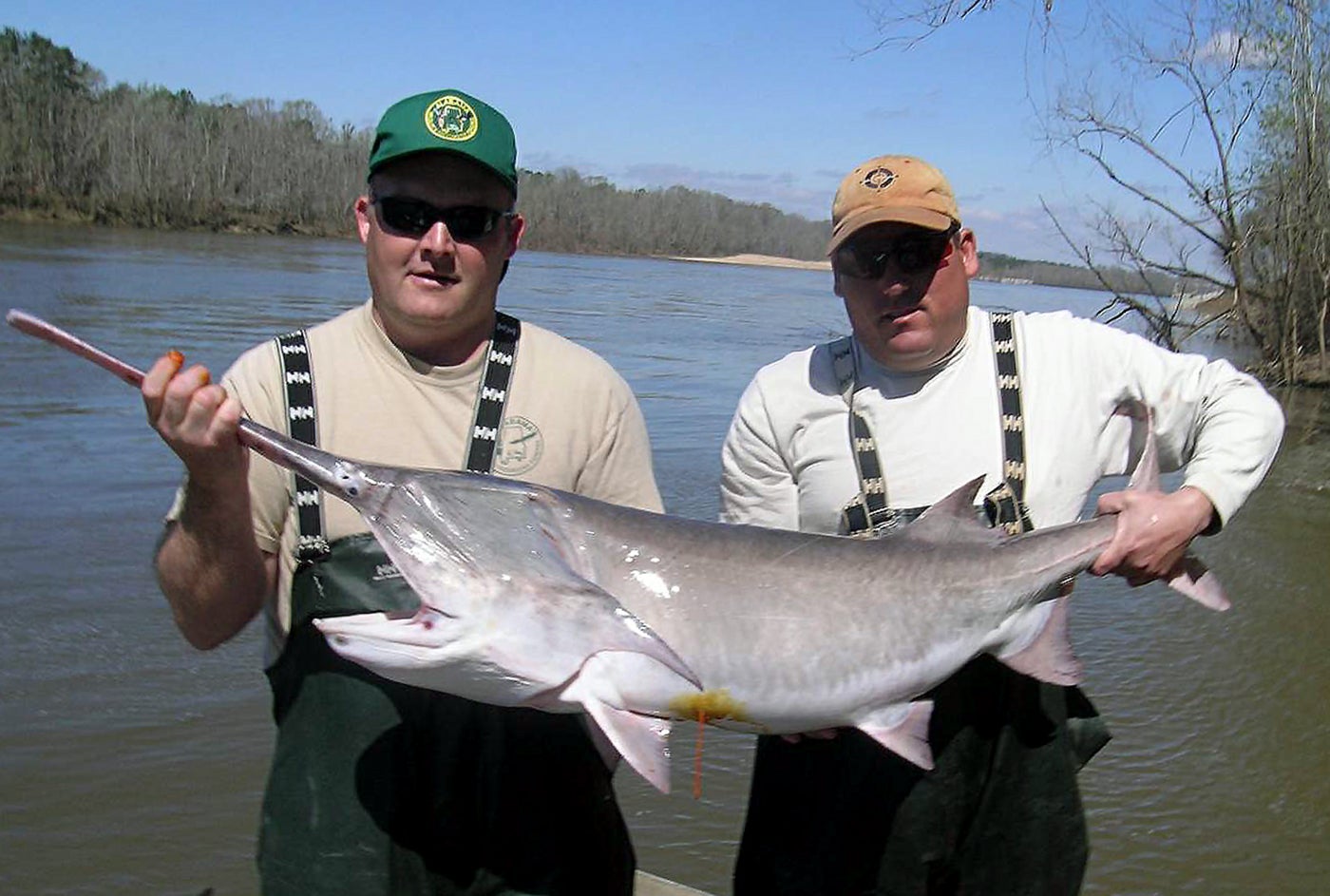The Alabama Department of Conservation and Natural Resources (ADCNR) has indefinitely suspended future commercial paddlefish fishing seasons on the Alabama River. Paddlefish mature slowly and have low reproductive rates making them highly susceptible to overfishing. This coupled with the lack of reliable fishery-dependent data from recent commercial paddlefish seasons has led to this protective measure.
In 1988, ADCNR implemented a statewide prohibition on the commercial and recreational harvest of paddlefish in response to the rapid depletion of the species in Alabama waters that occurred during the early to mid-1980s. The biology and life history of paddlefish combined with a relatively low population size and the high value of its eggs for use as caviar makes it particularly vulnerable to overharvest and localized extinction.
Sampling by ADCNR fisheries biologists earlier this decade indicated that the paddlefish population in the Alabama River had recovered to a level that was considered robust enough to support a regulated commercial fishery. In 2013, ADCNR initiated a limited annual commercial season for paddlefish within designated management areas of the Alabama River with the understanding that these monitored commercial fishing efforts would provide the data necessary to develop a management plan for the species.
During the initial paddlefish season in 2013, and with the subsequent seasons running through 2016, the information being obtained from harvest reports submitted by paddlefish harvesters and buyers was useful in evaluating the response of the paddlefish population to commercial fishing pressure.
However, beginning with the 2017 season and continuing in the 2018 season, the quality and accuracy of the fishery-dependent information being obtained by ADCNR from season participants diminished. An analysis of these reports indicated that some of the paddlefish harvesters were likely falsifying records in an effort to obscure an overharvest of the fishery.
During the 2018 season, reports of illegal fishing methods used by some permitted paddlefish harvesters lead to ADCNR law enforcement officers initiating an intensive investigation. This investigation resulted in 135 convictions for paddlefish fishing violations.
A review by ADCNR of the biological information and outcomes of the 2017 and 2018 commercial paddlefish seasons indicated that any future commercial paddlefish harvest seasons could lead to overfishing and jeopardize the long-term sustainability of paddlefish in the Alabama River.
For more information about paddlefish in Alabama, visit www.outdooralabama.com/non-game-fish/paddlefish.
The Alabama Department of Conservation and Natural Resources promotes wise stewardship, management and enjoyment of Alabama’s natural resources through four divisions: Marine Resources, State Lands, State Parks, and Wildlife and Freshwater Fisheries. To learn more about ADCNR, visit www.outdooralabama.com.
###






